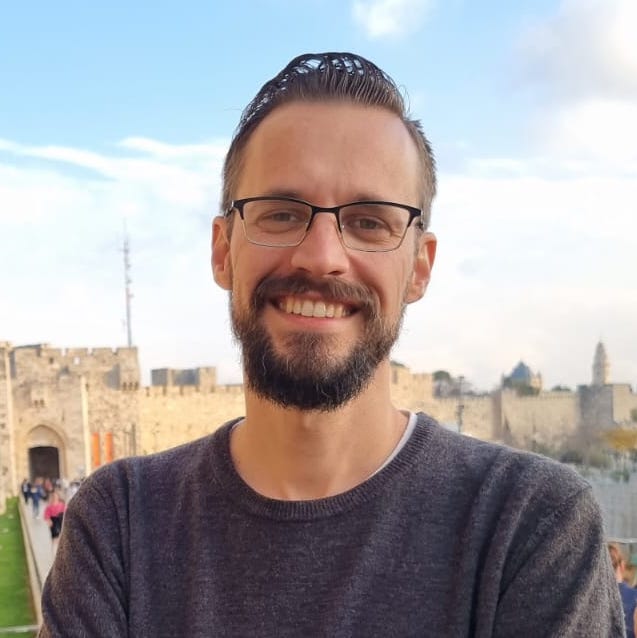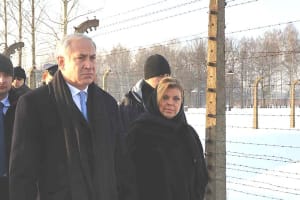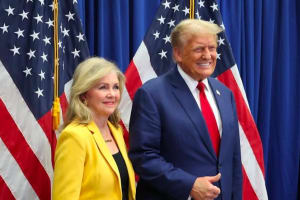Who are Arab-Israeli Bedouins?

On Oct. 7, the horrific invasion and massacre perpetrated by Hamas terrorists and their allies didn’t only mass suffering of Jewish Israeli citizens and foreign civilians. Unfortunately, many Israeli Arabs were killed and kidnapped into Gaza, as well. Among Arab citizens living in Israel, Israeli Bedouin community was the hardest hit.
Out of the 21 Arab-Israelis murdered by Hamas, 16 were Bedouins. Six others were kidnapped by Hamas, and so far only two of them have been released. Three remain in captivity, and one has already been confirmed killed.
Yosef Hamis Alziadana (53) was abducted into Gaza by terrorists on Oct. 7, along with his two sons Hamza (22) and Bilal (21) and his younger daughter Aisha (16). Yosef and Hamza are still in captivity, however, both Bilal and Aisha were among those released in the November ceasefire deal because they met the age requirement.
Two other Bedouins, Samer Fouad Talalka (24) and Kaid Farhan Elkadi (53), were also kidnapped from southern Israel border communities. Talalka was sadly one of the three Israelis mistakenly shot and killed by IDF fire last month after being misidentified as approaching terrorists. Elkadi is still in captivity.
Israeli Bedouins are citizens of Israel and mostly reside in the Negev Desert region. They are thought to be descendents of Arabian and Nabatean tribes who ventured north from the Arabian Peninsula into Sinai and the Negev Desert as early as in the second century B.C. European travelers in the 18th century would normally refer to the Bedouins as “the Arabs,” while they spoke of the farmers and the urban Arabic-speaking population just “the locals.”
Even though the nomadic lifestyle is what originally separated the Bedouins from other Palestinians, it is now more a matter of heritage, as many Bedouins have settled down in a fixed place in one of the many Israeli Bedouin cities. While some still live a semi-nomadic life, moving between communities at least twice a year.
Up until the State of Israel was established in 1948, almost all Bedouins in the Negev -- some 70,000 -- lived this semi-nomadic life, where they moved from place to place, spending the summers shepherding their goats and sheep and the rainy winters in a fixed place where they would work in agriculture. Bedouin nomads eventually began to build fixed homes instead of tents and over time, some of those camps turned into villages. From 1917, under the British Mandate, a process of urbanization started, where many found employment in road-paving and infrastructure development.
When the Independence War began, most fled either because of false rumors about the Israeli army approaching, or out of fear that they would be forced to be conscripted into the Arab League's army.
Just a few years later, in 1951, Israeli authorities estimated some 12,740 remaining Bedouins in the Negev Desert, however, the process of issuing identity cards and granting them full citizenship took at least three years. They were still under military rule, as all other Israeli Arabs, until the martial law was lifted in 1966 and they became citizens with full rights.
But do Bedouins, in fact, have full rights in Israel? Many of them would argue they don’t.
One reason is that the Bedouin communities are typically considered unrecognized villages. The Israeli authorities don’t recognize many villages’ land rights because of the lack of paperwork, which has been a problem as far back as under the Ottoman Empire.
The Ottomans had a system that allowed Bedouins to claim land ownership but most never bothered to register. Under British – and then Israeli – rule, Bedouins were required to provide Ottoman documentation to prove ownership, which the Bedouins often couldn’t present.
This issue has continued to cause strife for many years, as unrecognized villages do not receive municipal services, water or electricity, and perhaps most importantly – do not have the infrastructure for bomb shelters and siren alarms. Israel's Iron Dome missile defense system also sees the Bedouin area as “open desert” and doesn’t shoot down rockets being launched from Gaza.
While there has been some improvement, after two Bedouin children were killed by a Hamas rocket in 2014, many claim that government efforts to improve the situation are still lacking.
Israel has invested a lot into Bedouin society, trying to encourage communities to move to recognized cities with full services, but that process is still slow and painful. Since the traditional way of life is rarely enough to make a living anymore, many have no choice but to move to these cities, while others fall into poverty. As a result, the Bedouin population is vulnerable to crimes, drugs, and a plethora of other issues. Issues related to the treatment of women, such as the practice of polygamy, remain a source of concern for many. Critics argue that the government's efforts in addressing these concerns have not been adequate.
Until recently, Bedouins often complained that they felt detached from society, and cried racism against all Israeli attempts at modernization. The issue of the unrecognized villages is a sore point, and has been for many years. Criminal activity in the communities has extended to honor killings, gang fights between clans, and has even led to some demanding protection fees from Israeli desert farmers – burning or looting the farms when the Israelis fail to pay. Living in the middle of the desert, some Bedouins have been involved in illegal drug smuggling from the Sinai Desert to Israel.
Despite these issues, Bedouins are considered one of the most Israel-friendly members of the Israeli Arab society, next to the Druze community. While they are not obligated to serve in the IDF, many still volunteer, and have been invaluable as trackers for the IDF’s desert operations throughout Israel’s history. This was the case even before 1948, when some of them volunteered to the Haganah and the Palmach.
Ahmad Abu Latif, a Bedouin reservist in the IDF from Rahat, was one of the 21 Israeli soldiers killed in a RPG attack in Gaza on Jan. 22.
Shortly before falling in battle he wrote an emotional social media post emphasizing the shared fate with the Jewish state.
"I want to take this opportunity to raise a wake-up call to anyone reading this! We all share the same fate and we must stand together united," wrote Abu Latif.
"Unfortunately, there are people who do not believe in coexistence between different groups, people who try to frighten, provoke and destroy relationships and trust. Do not believe them and do not allow such a thing to happen," he continued.

The number of recorded fallen Bedouin soldiers is close to 200. The first Arab-Israeli political party to be a part of a coalition, that of Mansour Abbas, was facilitated largely due to Bedouin votes. Many in the community have vowed loyalty to Israel, especially after Oct. 7, which is seen by many as a game-changer.
For some, despite what they felt about Israel before, they feel they are part of the nation, and for them, standing with Israel is now also about defending their own families and homes against terror forces.
Hamid Abu Ar’ar lost his wife Fatima when Hamas militants drove past their car and shot her. She was wearing a hijab and there was no mistaking that she was a Muslim. However, the Hamas terrorists didn’t care. Ar’ar grabbed his 8-month-old son from the backseat and hid from the terrorists for seven hours until he was saved by IDF troops.
A Bedouin bus driver, Youssef Ziadna, rescued the lives of over 30 Israelis by fearlessly driving right into the outdoor Nova festival to save young people from the slaughter, rape and torture by Hamas operatives.
Ziadna said: “After this, the government needs to do a better job of looking after us because we’re also part of this nation. We are one people – we are Israelis. We live here together and we need to go hand in hand.”
Many believe the events of the "Black Shabbat" on Oct. 7, when so many Bedouins become both Israeli victims and heroes, is a catalyst for change in the dynamic and significant relationship between the Bedouin community and the State of Israel.

Tuvia is a Jewish history nerd who lives in Jerusalem and believes in Jesus. He writes articles and stories about Jewish and Christian history. His website is www.tuviapollack.com













